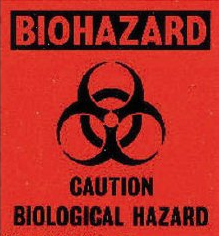Community Oversight - Council Of Censors
Community Oversight
Council Of Censors
The framers of the 1776 Pennsylvania constitution did not trust solely to "a mere demarcation on parchment of the constitutional limits of the several departments of government" to protect the people against oppression and tyranny. They introduced a special organ of government for this purpose, called the council of censors. The censors were charged with the duties of inquiring whether the constitution had been preserved inviolate, and whether the government had performed their duties properly without assuming unconstitutional powers. They were also to inquire whether the public taxes had been justly levied and collected, in what manner they had been spent, and whether the laws had been duly executed. They were empowered to send for persons, papers, and records, to pass public censures, to order impeachments, and to recommend to the legislature the repeal of such laws as should appear to them to have been enacted contrary to the principles of the constitution. Furthermore, they were empowered to call by a two-thirds vote a constitutional convention to amend any article of the constitution which might be defective, explain such as might be thought not clearly expressed, and add such as might be necessary for the preservation of the rights and happiness of the people.
From the 1776 Constitution of Pennsylvania:
""SECT. 47. In order that the freedom of the commonwealth may be preserved inviolate forever, there shall be chosen by ballot by the freemen in each city and county respectively, on the second Tuesday in October, in the Year one thousand seven hundred and eighty-three, and on the second Tuesday in October, in every seventh year thereafter, two persons in each city and county of this state, to be called the COUNCIL OF CENSORS; who shall meet together on the second Monday of November next ensuing their election; the majority of whom shall be a quorum in every case, except as to calling a convention, in which two-thirds of the whole number elected shall agree: And whose duty it shall be to inquire whether the constitution has been preserved inviolate in every part; and whether the legislative and executive branches of government have performed their duty as guardians of the people, or assumed to themselves, or exercised other or greater powers than they are entitled to by the constitution: They are also to inquire whether the public taxes have been justly laid and collected in all parts of this commonwealth, in what manner the public monies have been disposed of, and whether the laws have been duly executed. For these purposes they shall have power to send for persons, papers, and records; they shall have authority to pass public censures, to order impeachments, and to recommend to the legislature the repealing such laws as appear to them to have been enacted contrary to the principles of the constitution.
These powers they shall continue to have, for and during the space of one year from the day of their election and no longer: The said council of censors shall also have power to call a convention, to meet within two years after their sitting, if there appear to them an absolute necessity of amending any article of the constitution which may be defective, explaining such as may be thought not clearly expressed, and of adding such as are necessary for the preservation of the rights and happiness of the people: But the articles to be amended, and the amendments proposed, and such articles as are proposed to be added or abolished, shall be promulgated at least six months before the day appointed for the election of such convention, for the previous consideration of the people, that they may have an opportunity of instructing their delegates on the subject.
Passed in Convention the 28th day of September, 1776, and signed by their order.
BENJ. FRANKLIN, President.""
San Diego Border News




Comments
Post a Comment